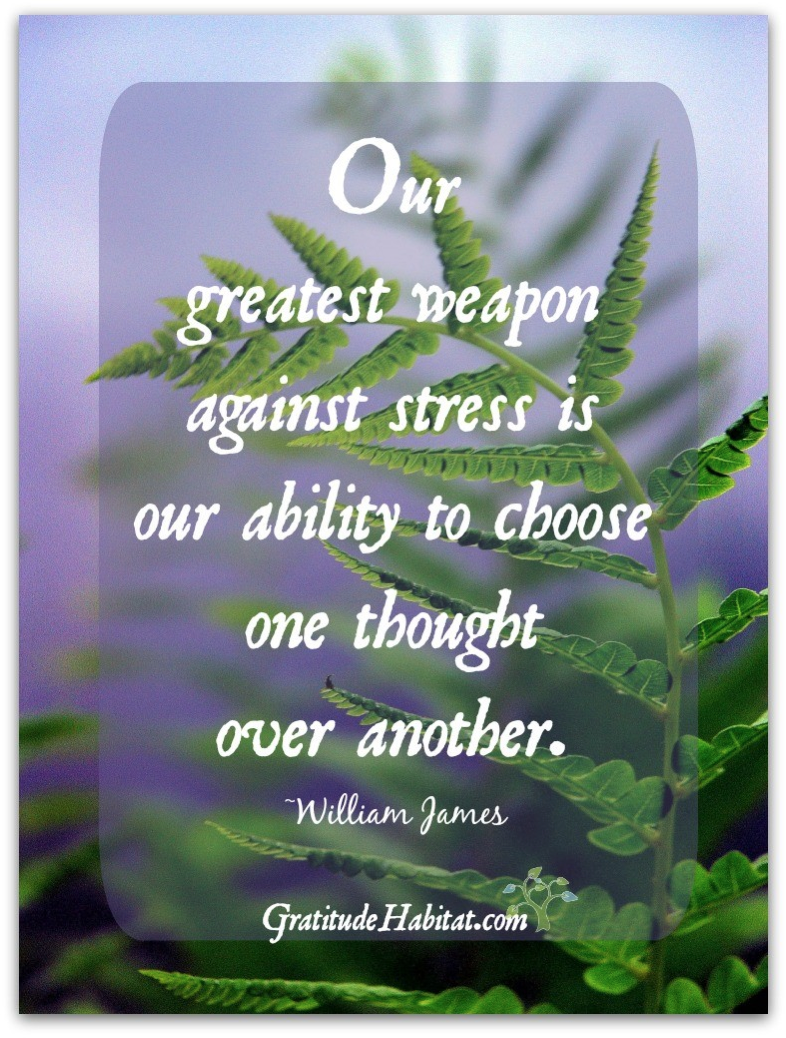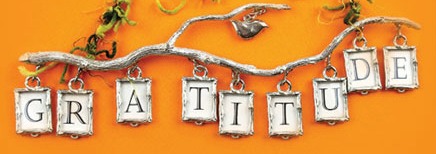Living In Gratitude: Our Greatest Weapon Against Stress
…is our ability to choose one thought over another. ~William James
Stress can affect both our body and mind, impacting our overall health and wellbeing. We all encounter stressors in our lives but how we choose to manage stress is an important piece of the puzzle.
Identifying the cause of our stress and working to positively address a solution can make an enormous difference in our ability to reduce negative affects.
When in a stressful situation, we feel under enormous pressure and tend to tense up, become anxious, frustrated and even angry. Our thoughts often become ‘cannots‘ rather than ‘can dos‘, resulting in a paralysis of sorts where we are unable to work toward a resolution. Teaching ourselves how to think of positive outcomes allows us to cope and manage stress, thus reducing its impact and often leading us to solutions.
Positive thinking doesn’t mean that you ignore life’s unpleasant or stressful situations. It means that you approach unpleasantness in a more positive and productive way. You think the best is going to happen, not the worst.

Instead of telling ourselves, “I’ll never get this project done in time!“, change your thought process to something productive such as, “I will break this project down into manageable portions to allow me to meet my deadline.” Then, visualize yourself achieving this goal easily.
The health benefits of positive thinking
Researchers continue to explore the effects of positive thinking and optimism on health. Health benefits that positive thinking may provide include:
- Increased life span
- Lower rates of depression
- Lower levels of distress
- Greater resistance to the common cold
- Better psychological and physical well-being
- Reduced risk of death from cardiovascular disease
- Better coping skills during hardships and times of stress
Our mind and our thoughts hold amazing power over our physical, mental and emotional wellbeing. Use this incredible weapon against the stress and the challenges in your life by choosing a ‘can do‘ thought over a ‘cannot‘ one.







